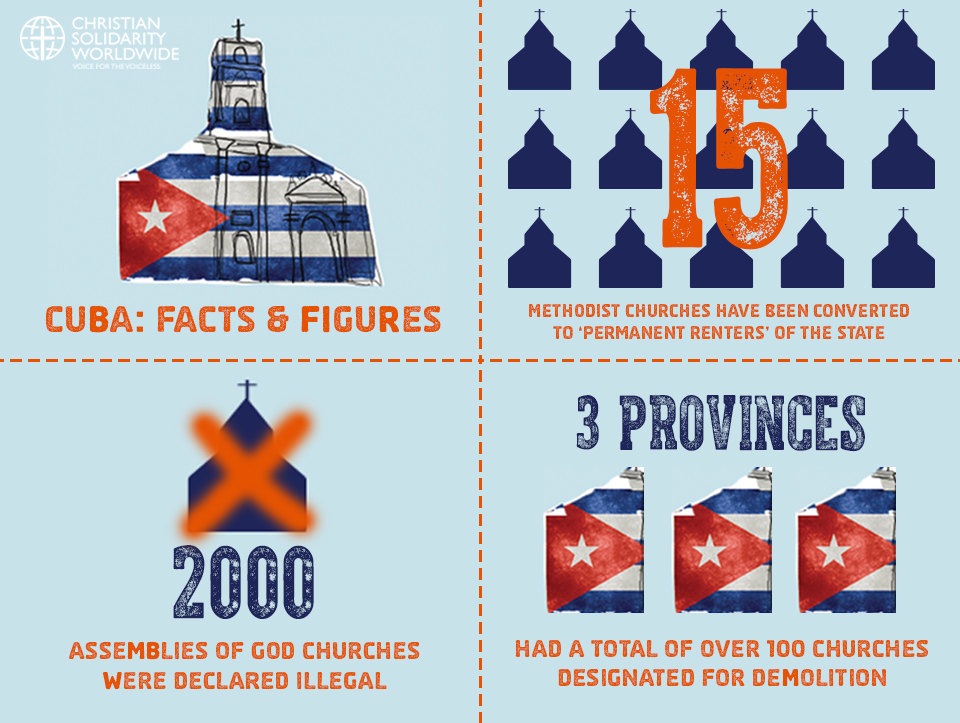
What stops you from going to church?
Since starting work at Christian Solidarity Worldwide, I’ve become a little obsessed with that question. As a Christian fortunate enough to attend a large church in a dedicated building, there’s not much standing between me and worshipping every Sunday morning.
But it’s an experience that is atypical. Thousands of Christians all over the world cannot guarantee that they’ll be able to go to church every weekend—and not just in the sort countries you’ve come to expect.
Take Cuba, for example. This country is hardly one of the headliners in terms of religious freedom violations—and yet Cuba is in the middle of a huge crackdown on Christians. Government officials are using new legislation to seize church land, despite the fact that most of the churches have owned their own property for years, declaring 2,000 churches illegal in 2015 alone.
What does this mean? Well, if the government owns the church, they can dictate what goes on in the building. They can put limits on the number of people attending, where and when they can meet, and even ask to see sermons ahead of time.
To top it off, the church can also be put under threat of demolition—as in the case of Reverend Juan Carlos Núñez Velázquez, whose church was scheduled for destruction in August. The Reverend and his congregation staged a peaceful protest that halted the demolition, but the church was destroyed on 8 January. And that’s just one of the many tactics the government is using to tighten its grip on religious groups. Last year the government sent a notice to all religious groups “reminding” them to submit all activities in advance for review and approval. Can you imagine what your church would be like if the government had to approve all your pastor’s sermons?
This is a story that’s surprisingly common all over the world. It’s a reminder for those of us in countries like the UK and US not to take our churches, and the ability to attend them, for granted. But here are two more things you can do right now: